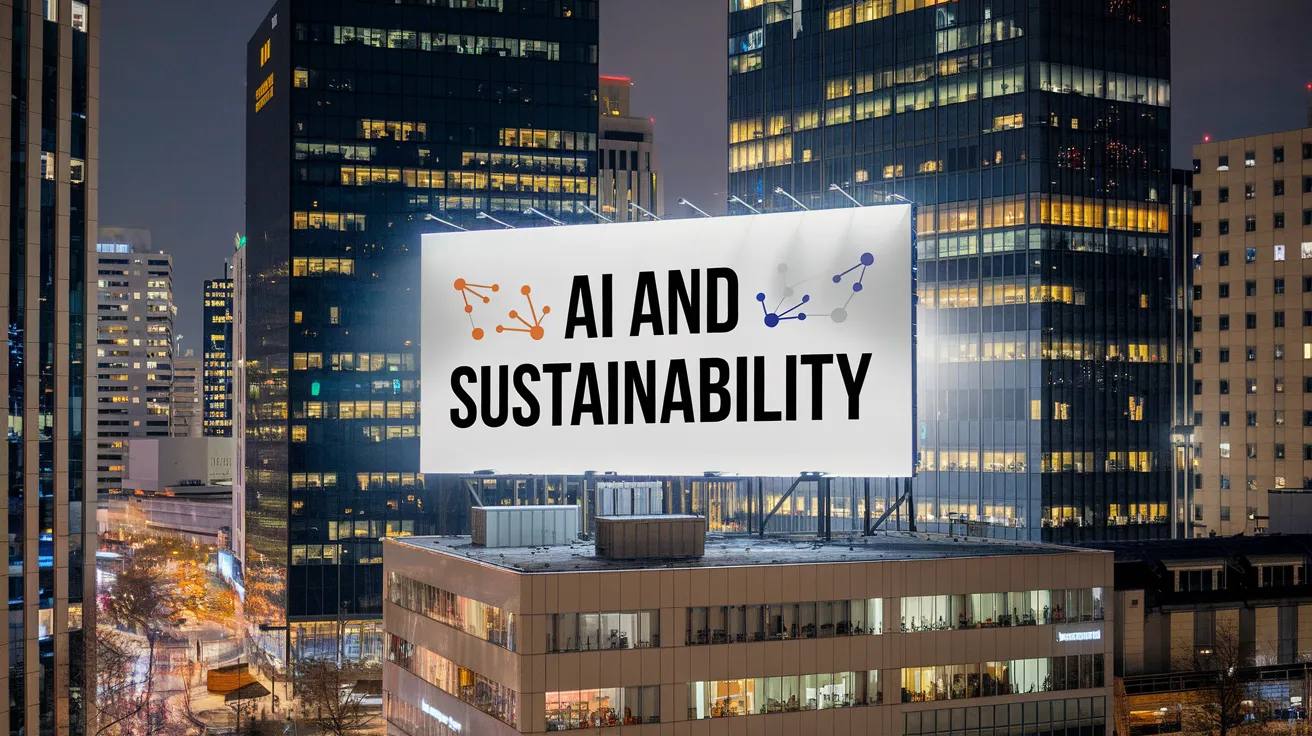AI’s Role in Shaping Sustainability

The rapid evolution of artificial intelligence (AI) is significantly transforming the landscape of sustainability across various industries. According to PwC’s 2025 AI Business Predictions, AI is poised to become a key enabler of sustainability initiatives. Companies that effectively harness AI can address investor priorities such as reducing carbon emissions, enhancing supply chain resilience, and promoting renewable energy adoption, all while maintaining regulatory compliance and mitigating climate risks.
To unlock the potential of AI, organizations need to align their AI strategies with sustainability goals, improve data collection for meaningful insights, and actively monitor and manage AI’s environmental impact. Such investments not only promise enhanced business outcomes but also facilitate smarter decision-making that can lead to progress toward a low-carbon economy. In PwC’s 2024 Global Investor Survey, a striking 64% of investors indicated support for increased spending to target carbon emissions reduction, with many prioritizing tangible climate actions, such as innovating products and strengthening supply chains.
AI is playing a transformative role in accelerating the energy transition, revolutionizing how energy is produced, distributed, and used. Companies that leverage AI-driven insights can optimize renewable energy integration and enhance grid performance. For example, energy providers utilize AI to optimize wind farm operations, while agricultural firms enhance energy efficiency in irrigation processes. These advancements underscore how predictive analytics can significantly improve energy demand forecasts, aiding industries in effectively allocating renewable resources.
Moreover, real-time energy optimization facilitated by AI can lead to reduced operating costs and lower risks associated with fluctuating energy markets. For instance, manufacturing firms are increasingly employing AI to enhance the efficiency of energy-intensive operations, supporting both productivity and reduced emissions. In the hospitality sector, AI-driven smart building technologies are streamlining energy usage, demonstrating the versatility of AI in promoting sustainable practices across diverse industries.
As sustainability regulations evolve, AI emerges as a critical tool for compliance. With legislative frameworks like the European Union’s Corporate Sustainability Reporting Directive prompting stricter regulations, AI can assist companies by automating data collection and generating audit-ready sustainability reports, significantly cutting down compliance time and costs. Furthermore, AI can help identify insights from extensive datasets that proactively inform sustainability strategies, such as recognizing emissions hotspots throughout the supply chain.
By effectively investing in AI capabilities that provide actionable insights and streamline compliance processes, businesses can move beyond mere regulatory adherence to achieving operational excellence. One of AI’s most impactful applications may be its ability to integrate sustainability data into strategic decision-making processes. Real-time insights from AI support business leaders in making informed choices regarding sustainability investments and optimization efforts.
Reflecting on future trends, PwC’s 2024 Cloud and AI Business Survey indicates that 63% of leading companies are increasing cloud budgets to utilize Generative AI, with 34% attributing these budget expansions to sustainability initiatives. This illustrates that AI is not just a tool for innovation; it is also an essential component for meeting sustainability goals.
As we look beyond 2025, the anticipated growth in computational power paired with renewable energy adoption will make AI even more accessible and transformative. By strategically implementing AI initiatives to enhance energy efficiency, ensure compliance, and optimize supply chains, businesses can position themselves as frontrunners in the sustainability-driven economy. Acting now will allow companies to meet rising investor expectations while achieving measurable outcomes for a sustainable future.